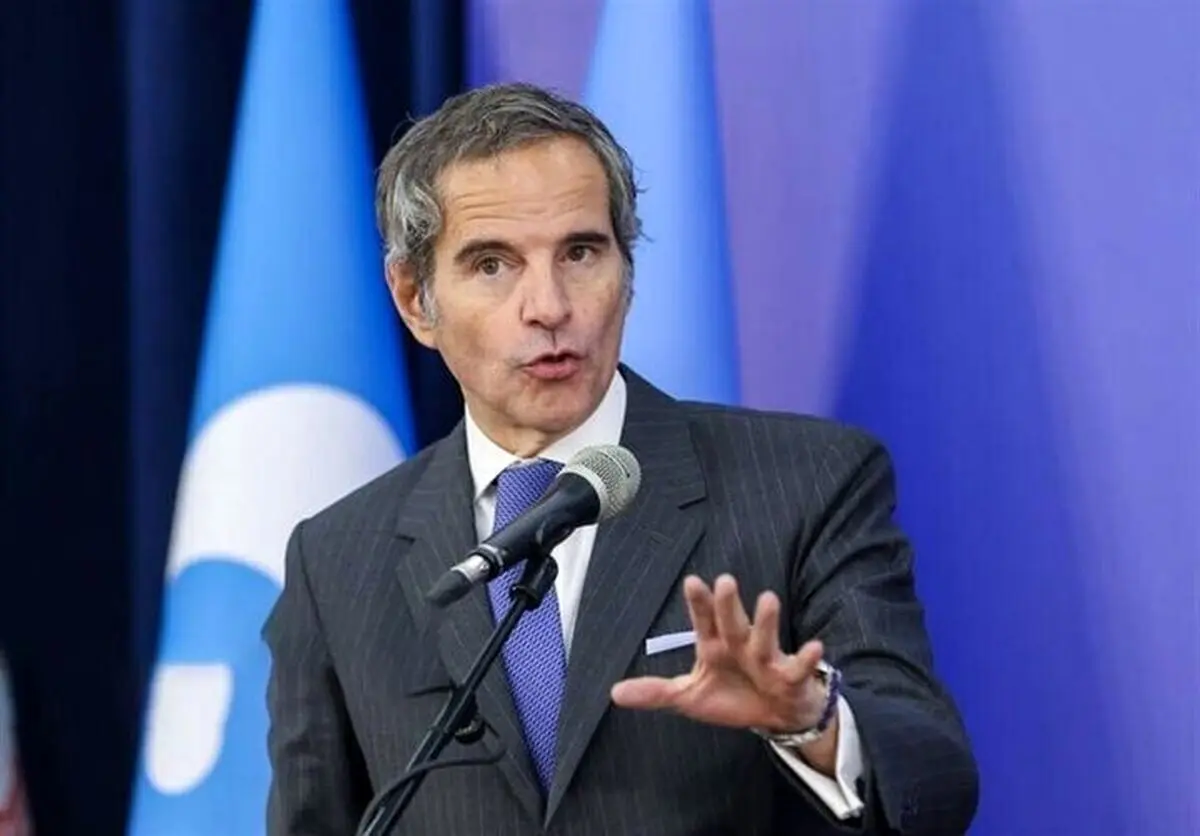SAEDNEWS: IAEA Director Rafael Grossi emphasized the importance of full access to all Iranian nuclear sites, saying inspections must continue despite attacks and political tensions. He highlighted the 30-day period created by the European snapback mechanism as a potential window for diplomatic progress.

Rafael Grossi, Director General of the International Atomic Energy Agency, appeared on a podcast broadcast on Friday by Radio France Internationale, addressing questions regarding recent developments around Iran’s nuclear program.
According to ISNA, when asked about the activation of the snapback mechanism by European countries and whether “this decision had become inevitable in recent days,” Grossi said: “All political decisions are like that; they can be avoidable or unavoidable. Ultimately, it is a political decision and should be understood as such. I think the position of France, the UK, and Germany was clear, and now it has been implemented.”
He continued, justifying Western actions: “This is part of a process. A 30-day period has now started, during which we hope progress will be made before sanctions are reimposed. This mechanism ensures that no veto by Russia or China at the Security Council can prevent the return of sanctions. Additionally, in October, Russia will hold the Security Council presidency, so Europeans felt a sense of urgency.”
Contacts with Iran:
In response to whether alternative options existed, Grossi said: “That depends on the logic of the three European countries, and I should not interfere. What I can say is that, for the Agency, it is important that we can resume our inspections. This was part of the conditions the European countries proposed—for example, if Iran cooperated well with the Agency, they might allow more time. Or if Iran resumed talks with the U.S., an extension might be possible. These are matters between countries. But we continue our work and will see the impact on the process we have started with Iran.”
Regarding Iran’s reaction, which described the decision as “unjustified and illegal” and warned that cooperation with the IAEA could be severely affected, Grossi said: “We had contacts yesterday. As you said, naturally, there are reactions at different levels—government, parliament, and political factions. In Iran’s parliament, the more conservative voices are louder. We need to see how this unfolds.”
Cooperation with Iran:
Grossi emphasized that Iran’s claim that renewed sanctions would make inspections very difficult or even impossible should be considered, but he stressed that he aims to maintain his own path: “If I look at all the side effects, nothing will move forward. Although this is undoubtedly a very important issue.”
Regarding the return of IAEA inspectors to Iran, he said: “It is clear that after the attacks and the 12 days of conflict, conditions are not as before. That must be acknowledged. What has not changed are the legal frameworks—the commitments of Iran as a member of the NPT and the safeguards agreements. Initially, Iran said, ‘No, these must change or be adjusted.’ We explained that the agreements and legal frameworks will not change. At the same time, it was logical to consider Iran’s concerns and see what practical ways exist to adjust methods and procedures. This does not change the nature of inspections, only the way they are implemented.”
He added that discussions included issues related to the Bushehr nuclear fuel and other related topics, noting that these were significant achievements, as many had thought the Agency could no longer return to Iran.
Access to All Sites:
When asked if he hopes to access nuclear sites damaged by attacks, Grossi said: “Returning to all sites in Iran is absolutely necessary. There is no selective inspection regime. Iran cannot say, ‘Come here, but not to Natanz or Isfahan because they were attacked.’ Everyone knows these attacks were serious and caused damage. Security and safety measures may be necessary, but no site is exempt from inspection.”
He emphasized: “This is not only a legal issue; more importantly, we must not forget that 60% enriched uranium exists at those sites—materials that could potentially be used for nuclear weapons. Therefore, it is essential for our inspectors to be present and confirm that these materials remain in place. Technically, this is feasible, and it underpins all these processes.”
This comes while Iranian Foreign Minister Seyed Abbas Araqchi stated that IAEA inspectors’ entry into Iran occurred under the Supreme National Security Council’s decision to monitor Bushehr nuclear fuel replacement and that no final agreement text on a new cooperation framework between Iran and the IAEA has been approved.
Grossi had previously told CNN on Thursday that many of these stockpiles remain in place, but physical access to facilities such as Fordow, Natanz, and Isfahan is difficult due to the serious damage caused by attacks in June.

